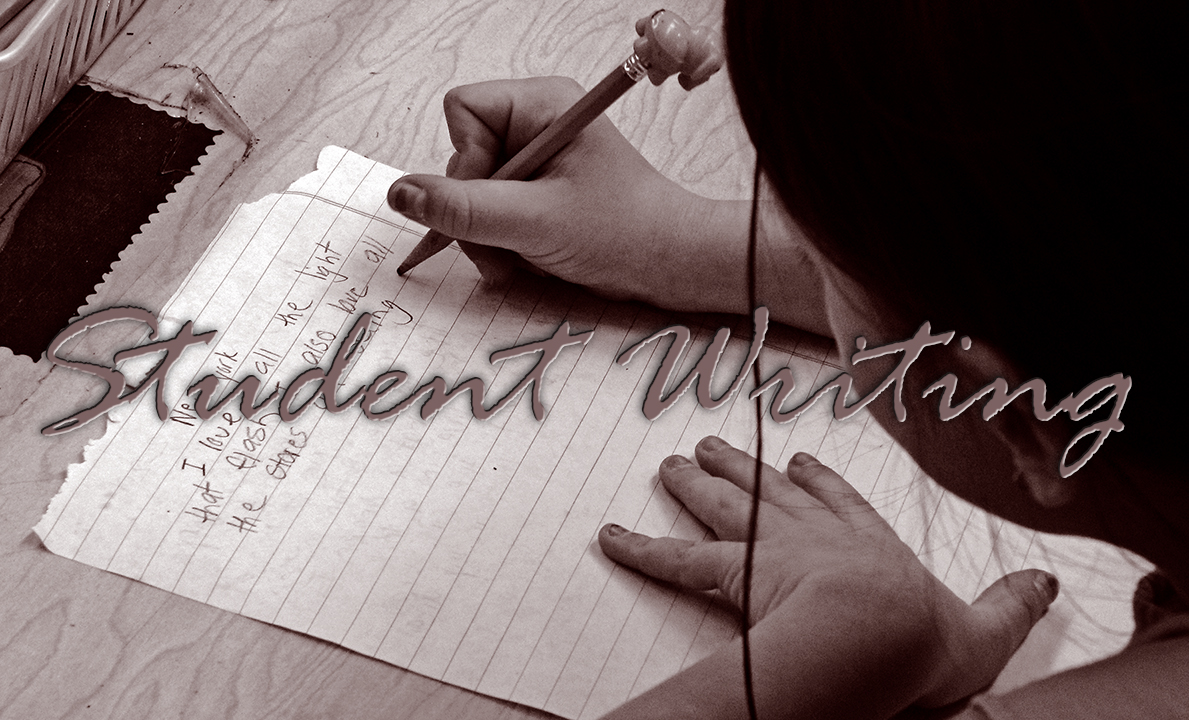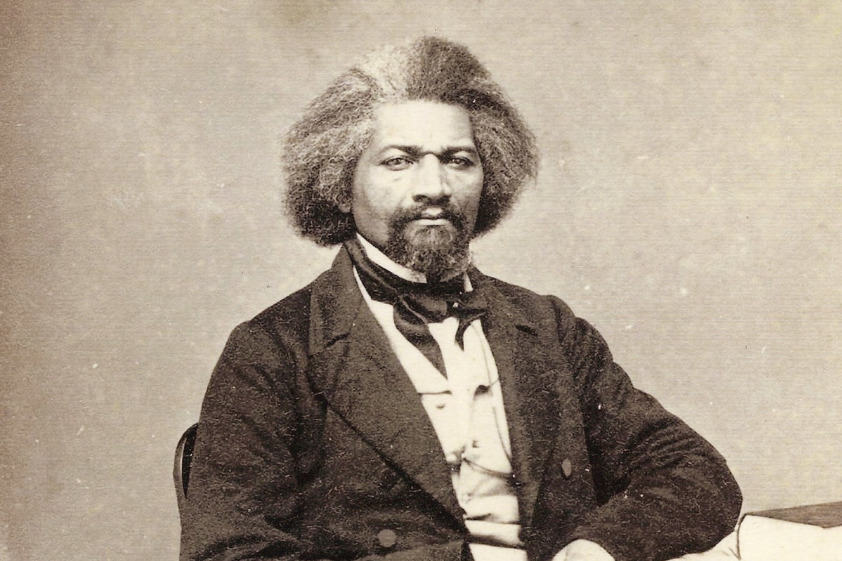So much of what informs our teaching comes from our own experience as students. And so much of what informs our experience as a student derives from the grades we are given. There have been times, both in my own experience as a student and in my experience as a teacher, when the grade has been off. Like, way off.
As odd and unfair as it is, I have watched students who can write well end up failing because of the way a grade is broken into categories. Conversely, sometimes students who can’t write very well at all ending up passing a class they shouldn’t. And it’s very rare that grades even begin to address how meaningful the learning experience is for the student.
At the start of my junior year in college I signed up for a class taught by two of my favorite professors. The year before I had taken time off for health reasons and was eager to get back to learning. The class was filled with my English major friends and we often extended class conversations as we walked to the parking lot and sometimes brought them back up again at the pub. My mind grew. I began to make connections between what we discussed in class and my own experience. It was one of the most meaningful periods of learning I had ever had.
That same semester I was also taking a philosophy class. It had sounded interesting in the course description but during the lectures I often found my mind drifting and I had trouble keeping awake while doing the reading assignments. Around October, I started coasting in the class, skipping the readings and doing the bare minimum to get by. When I received my grades at the end of the semester, I was stunned to see I’d earned the very same grade in both classes. Impossible. I was hurt. The experience made me question how a professor—even a favorite one—could really know how much learning a student was experiencing.
Students complain about grades all the time. But as a teacher, I sometimes want to complain, too. I am unconvinced that grades are an adequate marker for revealing the depth of one’s understanding and engagement. If we could teach without grading, I think we’d all be happier. But that is not how the system works. The grade is the measure of things. It is the signal to students, administrators, parents that something happened in the classroom.
That’s part of the problem. There’s a lot that happens in the classroom. What does a grade signify? Successful demonstration of skill is the obvious answer. But the way a grade is computed is often much more complex than that. Teachers often factor in class participation. They may dock points for late work. I often give effort grades based on a student’s intention to practice a particular skill, such as paragraph organization, coherence, topic sentences, or proper MLA citation, and not on actual achievement of those skills because students need a space to practice without fear of failure in order to master a skill. Later, the bigger assignments are graded to show the student’s level of mastery. Sometimes this works— if a student is willing and invested in learning the skill. Generally, the education system has trained the kids well and if there is no grade or incentive, they likely won’t bother putting in the work. Taking these things into account can make computation of a grade representative of a student’s learning very difficult.
Having coached the sophomores in my Expo and Analysis class through some fairly big writing assignments one fall, I decided to fill the last two weeks of the semester with mini lessons attending to what the class needed most. Brevity, it seemed, needed some attention.
“Do you know what the word brevity means?” I ask the room. Blank stares. The word brevity unfailingly makes me think of the movie The Big Lebowski and I launch into one of my favorite quotes from the movie. “‘I’m the Dude, so that’s what you call me. That or, uh, His Dudeness, or uh, Duder, or El Duderino, if you’re not into the whole brevity thing.’” I’m cracking myself up but there’s only one student who laughs, I’ll call him Sam, one of my favorites. (Yes, teachers have favorites. Did you not know?)
Sam was a junior but landed in my class, a general education requirement, after transferring from another college. He was a solid writer, a hard-working student, and one of those students you can watch make connections between everything in their lives— inside the classroom and out.
I began the mini unit on concise writing with a snippet from another movie, Karate Kid. The ultimate success of the hero of that film, Daniel, is linked to his devotion to practice, even when tedious. When he first expresses his desire to learn karate, his mentor Mr. Miyagi, responds with a challenge: “Show me. Sand the floor.” I want them to see that the same is true in writing. The practice of examining sentence structure—sanding the floor, if you will—is what allows us to construct sentences that are both powerful and to the point, with no extra words, no fluff.
Never say more than you must, I told them happily, as we peeled back overwritten sentences to their core, got choosy about verbs and nouns, and eliminated redundancies. Then, in what I considered to be a top-notch marriage of general composition teacher brain and creative writer brain, I gave them the merry assignment of writing three haiku— about anything you want, I told them generously— to let the idea of compact, efficient use of words really sink in. I viewed the assignment as a reward for their hard work, all that sanding they’d done.
“This is going to be so much fun,” I told them.
They stared at me from their ocean of desks. “Writing is work, Mrs. Abbene,” one said.
“I suck at writing poems,” another said.
“You’ll be fine,” I tell them. “This is a research and analysis class but you, lucky doves, get to write poetry! About anything. It’s like an end of the semester present from me to you!” More eye rolling. Sam laughed again. Ah, my boy.
Now an important subset to the grading problem is the attendance problem. As a teacher, you are charged with many things but one of those things is creating an orderly, meaningful learning environment. Very important to the success of this is attendance. This is tricky for a few reasons.
First, the professor must present a compelling reason to come to class. Conventional wisdom might argue that is incumbent upon the student to come to class anyway but practical commonsense counters, why bother coming if there’s nothing to learn? So, teachers work hard (or should) to make their classes not only academically useful but delivered in a somewhat engaging manner. Sometimes we are more successful than other times but even when we are not, there is still more to be learned from coming to a boring class than from not coming to class at all. My best teaching and consequently, my students’ best learning, is born from the work students bring to class. Attendance policies are made to ensure that this happens. However, like everything else, there is always a gray area.
The day the brevity poems were due, the Vermont weather forecasters were predicting the first major snowstorm of the season. It was early December and we had just weathered November’s stick season, where it is too cold to ride bikes, the woods are filled with deer hunters, and there is no snow to ski on.
The giddy anticipation of a snowstorm that elementary school kids feel has never fully left me. November is hard. It’s cold. Raw, mostly. Dark, always. I move indoors to cook heavy fall dishes and wait for enough snow to pile up in my backyard or at the mountain to ski on. Like Christmas, the anticipation of a snowstorm is almost as exquisite as the actual event. This week, the weather forecasters were calling for two feet of the good stuff.
Earlier in the semester, I discovered Sam worked at the rental shop at the local hill where my family and I skied. Since the mountain had opened, we often compared notes about our ski adventures and we were both eager for the season to start in earnest. More snow was critical.
As the snowflakes began to fall that night, my kids and I slept with our pajamas on inside out in the tradition of snow day prayer. I obsessively refreshed the Snow Day Calculator app on my phone. Its predication hovered around 90% chance of a snow day. Things were looking good.
The morning of the storm, for once, the forecasters were right. Our deck railing boasted a foot of light and fluffy powder and more was coming down. Usually the view from our house reached across the valley to Mount Mansfield but today we were socked in, giant flakes of Christmas snow filled the air between the deck and the trees beyond the backyard. My daughters’ school was still on though, our local superintendent always reluctant to cancel, and so I checked my school email ahead of class. The email at the top of the list was from Sam.
Greetings,
I am writing to apologize in advance for missing class tomorrow. The weather predictions were spot on in the mountains and the skiing was pretty incredible today. The snow is supposed to continue overnight so tomorrow will probably be just as sick. I think I’ve only missed one other class, hopefully this will not have a significant impact on my grade. A B+ is worth a powder day in my book! Please don’t take it personally, in fact, you’re the only teacher I would email about skipping a class because you don’t seem to take any shit. Therefore, I feel as though you deserve an explanation for my absence.
On an unrelated note, can you confirm that our exam is on Monday at 8:00 am in our regular meeting room?
Sam
I would be lying if I said the arrival of this email surprised me. I would also be lying if I said I was angry at receiving it. Everybody thinks teachers want all their students to get As. And, of course, we are happy when they do. But as a human being who is also a teacher, you can’t help but hope for more for your students. Yes, you want them to be able to form coherent and thoughtfully developed work. You want them to know how to research and use that information to support their opinions. You want to see an obvious progression of skill from beginning of semester to end, evidence of your mark and their attention to their own academic evolution.
It is important to keep your head down and grind away at it. But true balance is also understanding that your life does not happen in a vacuum. There are so many pieces to a successful life.
So I sat down at my desk, energy for the day bolstered not by the coffee next to my computer, but from the still falling snow quietly filling the woods. I began a reply.
Sam-
Snow falls steadily.
Miyagi: Wax on, wax off.
But, mountains beckon.
See you on Monday, 8:00 a.m., regular room.
DA
Two years later, I sat in the audience as Sam strode confidently across the graduation platform to collect his well-earned diploma. As I watched him on the stage turn and proudly search the crowd for his people, I could not help but think back to the haiku assignment. Brevity and balance are not so far off from each other. If brevity meant targeted precision and balance meant even distribution, then understanding both can only help students make the cut to what is important. Sam wisely understood this; sometimes a B+ is just fine.
Darcie Abbene has work in Tupelo Quarterly, Whitefish Review, Green Briar Review, and Parhelion Literature and reviews books for Necessary Fiction, Split Rock Review, and Kirkus Reviews. She is the managing and nonfiction editor at Green Mountains Review, an adjunct professor, and an editorial project manager at School Library Journal.



